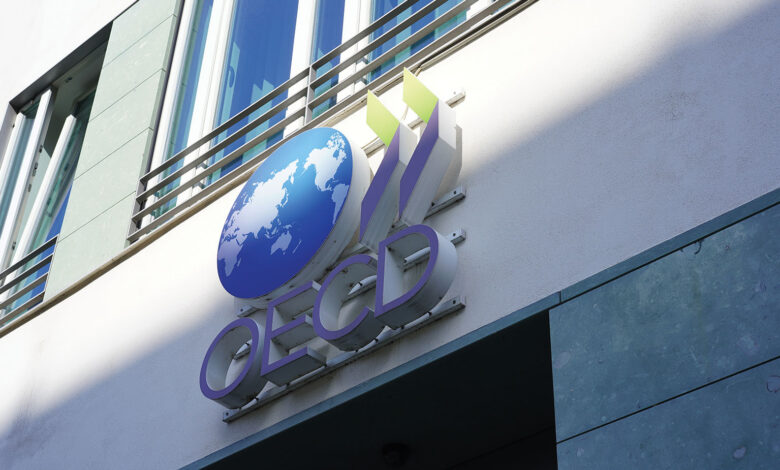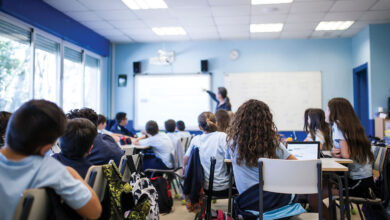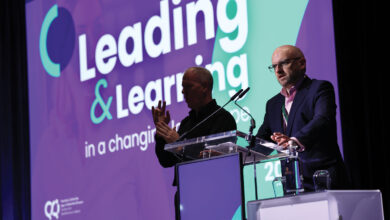OECD’s assessment of education in Ireland

While Irish students often outperform those from other parts of the world in literacy, mathematics, and science, the State continues to grapple with deep-seated inequalities, particularly for students from disadvantaged backgrounds and minority communities, research by the OECD finds.
Ireland’s education system has garnered international acclaim for its strong performance in literacy, mathematics, and science. However, challenges persist, particularly in addressing inequalities for socio-economically disadvantaged students, as highlighted by two 2024 OECD reports.
Education at a Glance 2024 and the OECD Review of Resourcing Schools to Address Education Disadvantage in Ireland explore these issues in depth, offering a comprehensive overview of Ireland’s strengths, shortcomings, and opportunities for fostering equity.
Ireland’s achievements in education are notable. According to Education at a Glance 2024, tertiary attainment among adults aged between 25 and 64 reached 54 per cent in 2022, well above the OECD average of 40 per cent. Similarly, the share of young adults without upper secondary qualifications has dropped significantly, standing at 5 per cent, far below the OECD average of 14 per cent.
However, Education at a Glance 2024 also underscores persistent inequalities, particularly for students from Traveller and Roma communities and those living in areas of concentrated disadvantage.
Gender disparities compound these challenges. Women dominate in tertiary education, yet young men outperform them in early school leaving metrics. Meanwhile, regional differences such as lower secondary enrolment rates in the Eastern and Midland regions highlight the uneven distribution of educational opportunities.
Evaluating the DEIS Programme
The OECD Review of Resourcing Schools to Address Education Disadvantage in Ireland provides an in-depth evaluation of the Delivering Equality of Opportunity in Schools (DEIS) programme, Ireland’s primary strategy for addressing educational disadvantage. Launched in 2005, DEIS now supports nearly 30 per cent of Irish schools with additional resources, including smaller class sizes, enhanced school meal programmes, and targeted literacy and numeracy interventions.
While the programme has narrowed achievement gaps, challenges remain. The OECD Review of Resourcing Schools to Address Education Disadvantage in Ireland highlights the rigidity of DEIS eligibility thresholds, which leave some schools and students without support despite clear needs. Additionally, the report emphasises the demand for a “DEIS Plus” category to address the “acute challenges faced by schools serving the most disadvantaged communities”.
Challenges in resourcing
Ireland’s baseline school funding ensures relative parity, but additional costs, such as voluntary contributions, often fall on parents. According to Education at a Glance 2024, non-DEIS schools are far more likely to rely on these contributions, placing an undue burden on lower-income families. Furthermore, staff shortages disproportionately affect disadvantaged schools, with the OECD Review of Resourcing Schools to Address Education Disadvantage in Ireland identifying teacher retention and recruitment as critical issues.
The OECD Review of Resourcing Schools to Address Education Disadvantage in Ireland also critiques the use of the Pobal Haase Pratschke (HP) Index for allocating DEIS resources. While scientifically validated, the index omits variables like immigrant and minority status, potentially excluding high-need students. The OECD Review of Resourcing Schools to Address Education Disadvantage in Ireland recommends refining these indicators and adopting a more dynamic approach to resource allocation to better address the diverse needs of Ireland’s schools.
Early childhood education
Early childhood education and care (ECEC) is vital for reducing developmental gaps, yet Education at a Glance 2024 points to stark disparities in access. Participation rates for children from low-income families are far below those of wealthier peers – 7 per cent versus 54 per cent.
Furthermore, Ireland has one of the longest “childcare gaps” among OECD countries, with free early education starting five years after paid parental leave ends. Bridging this gap is critical for levelling the playing field and ensuring long-term equity.
Empowering teachers and schools
The OECD Review of Resourcing Schools to Address Education Disadvantage in Ireland commends Ireland for its professional development initiatives within DEIS schools but identifies systemic challenges affecting teacher capacity, including staff shortages and a lack of diversity in the teaching workforce. Embedding professional development within a structured improvement cycle and reducing barriers to participation could, the OECD argues, address these gaps.
OECD Review of Resourcing Schools to Address Education Disadvantage in Ireland also highlights the importance of fostering collaboration and peer learning among teachers, stating that initiatives such as the State’s new support service, Oide, show promise in facilitating knowledge sharing and capacity building. However, the OECD states that further investment is needed to embed these practices across all schools.
The need for collaboration and coordination
Educational disadvantage is often intertwined with broader social challenges, such as housing insecurity and mental health challenges. The OECD Review of Resourcing Schools to Address Education Disadvantage in Ireland underscores the need for stronger coordination between Ireland’s education, health, and social services sectors. As such, the OECD says that schools frequently shoulder the burden of navigating fragmented systems, diverting time and resources from their core mission.
For example, long waiting times for psychological assessments and limited access to therapeutic services “disproportionately impact disadvantaged schools”. The OECD therefore argues that improved interagency collaboration would alleviate these pressures and enable a more holistic approach to student wellbeing.
Analysis
As highlighted by both OECD reviews, Ireland’s education system is a general high-performer with some underlying challenges. While the DEIS programme demonstrates government’s commitment to addressing disadvantage, structural reforms are needed to unlock its full potential. Nevertheless, with targeted investments, refined policies, and strengthened collaboration, Ireland has an opportunity to lead globally in inclusive education.





